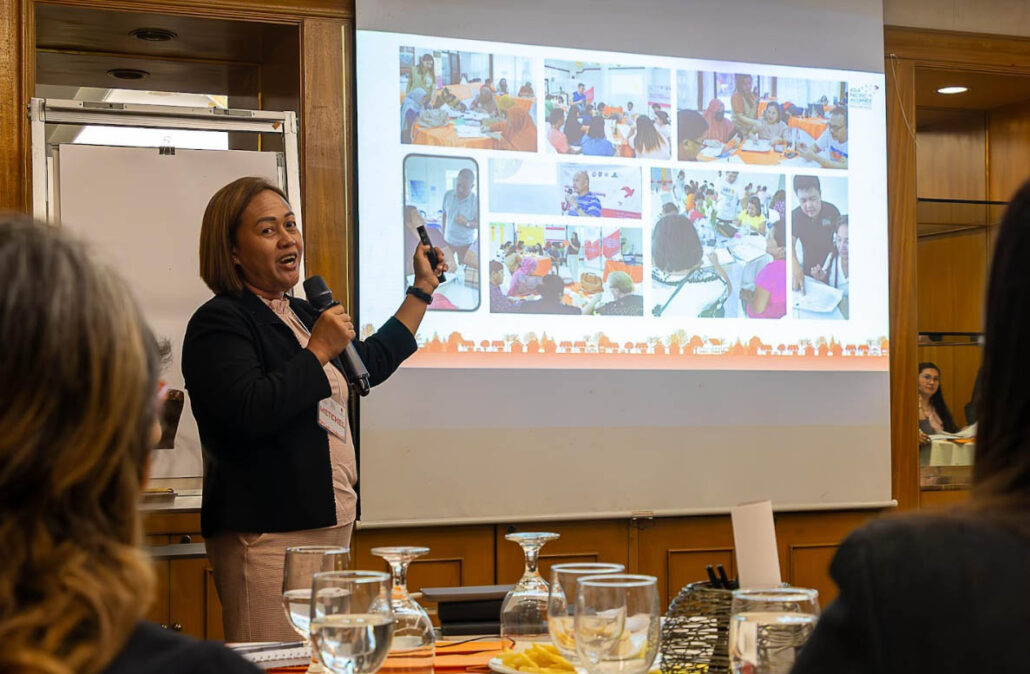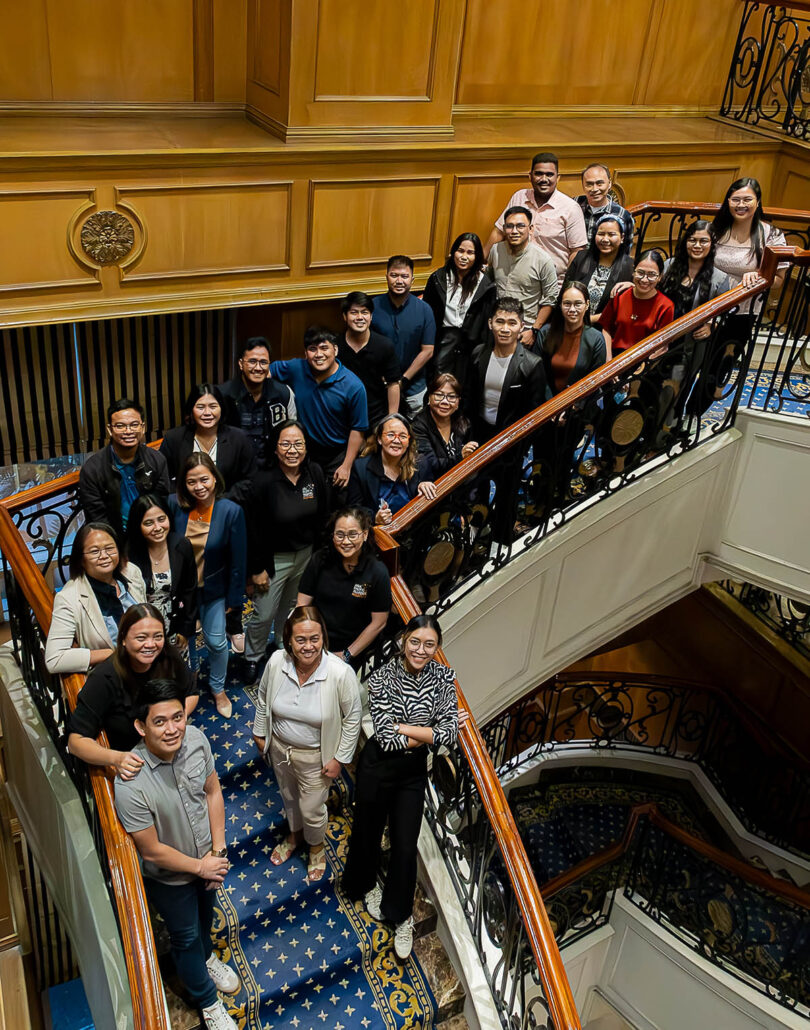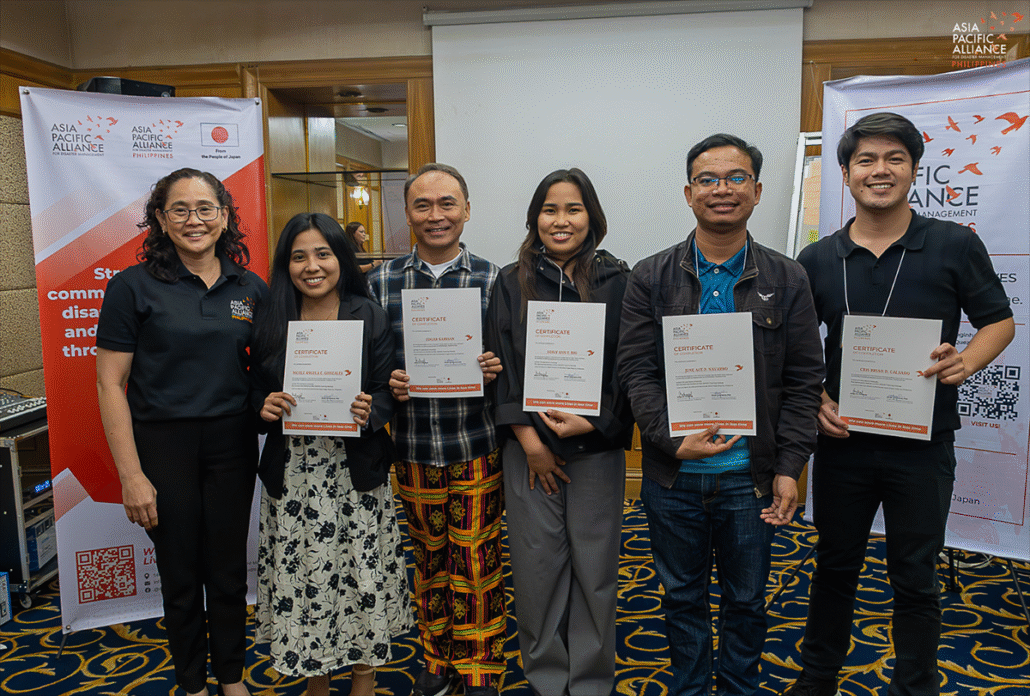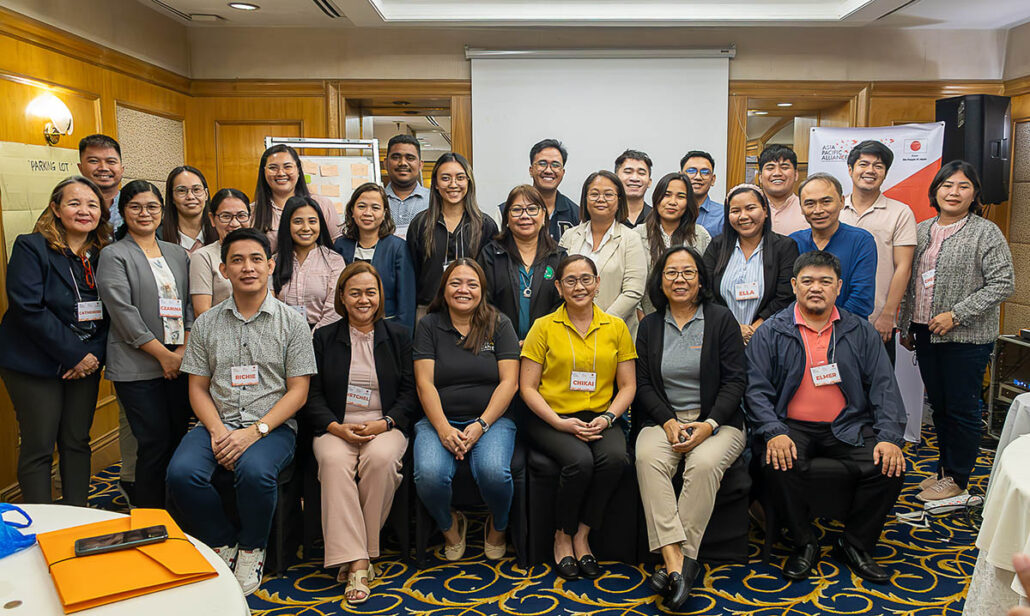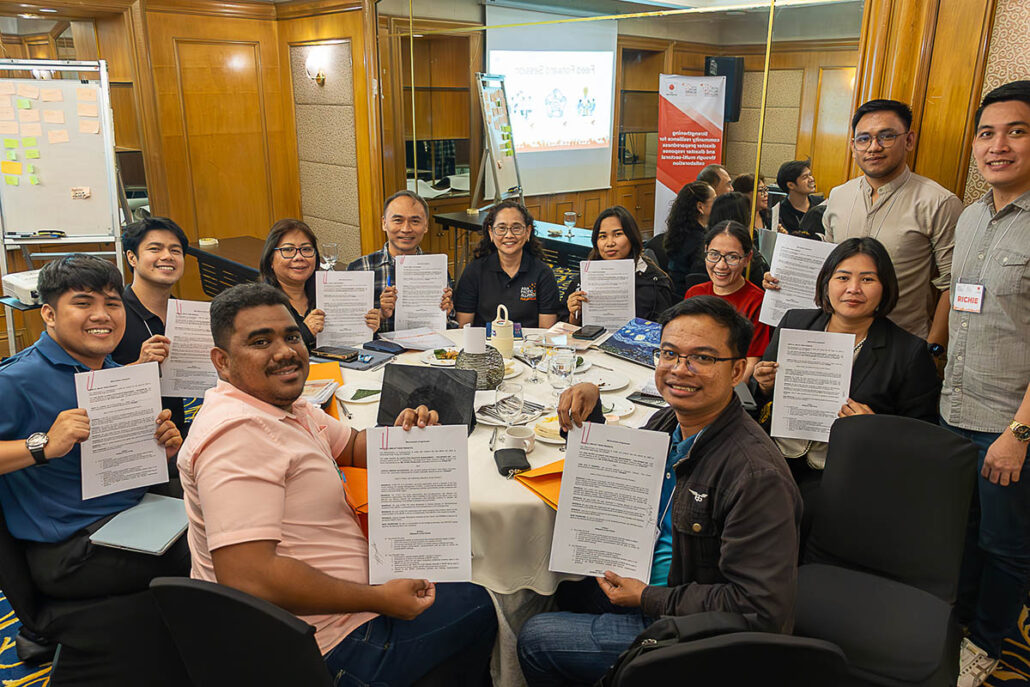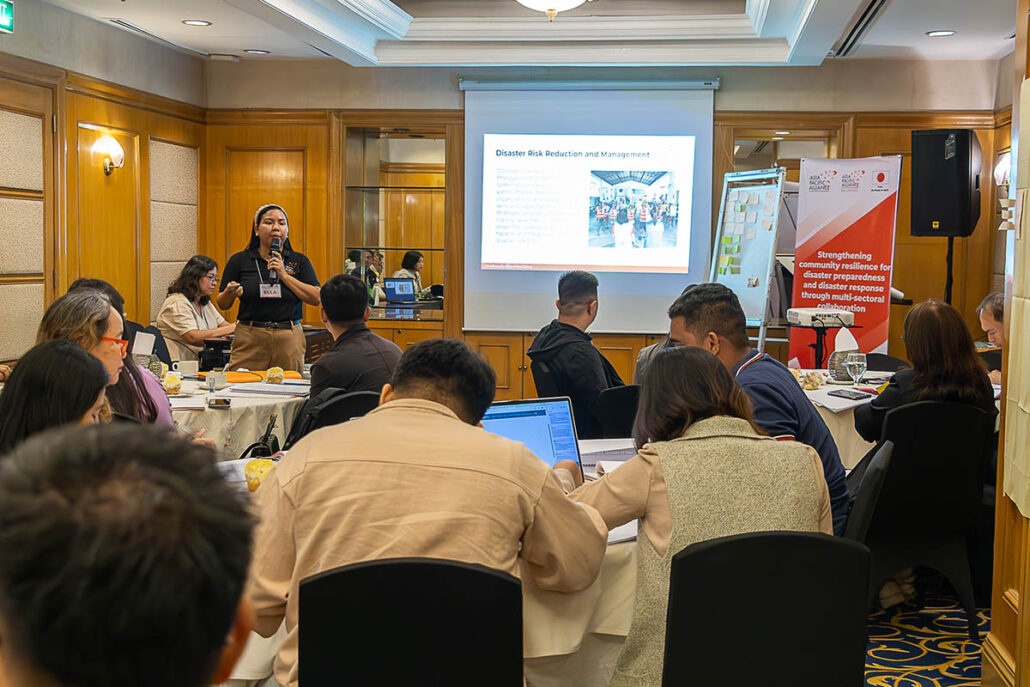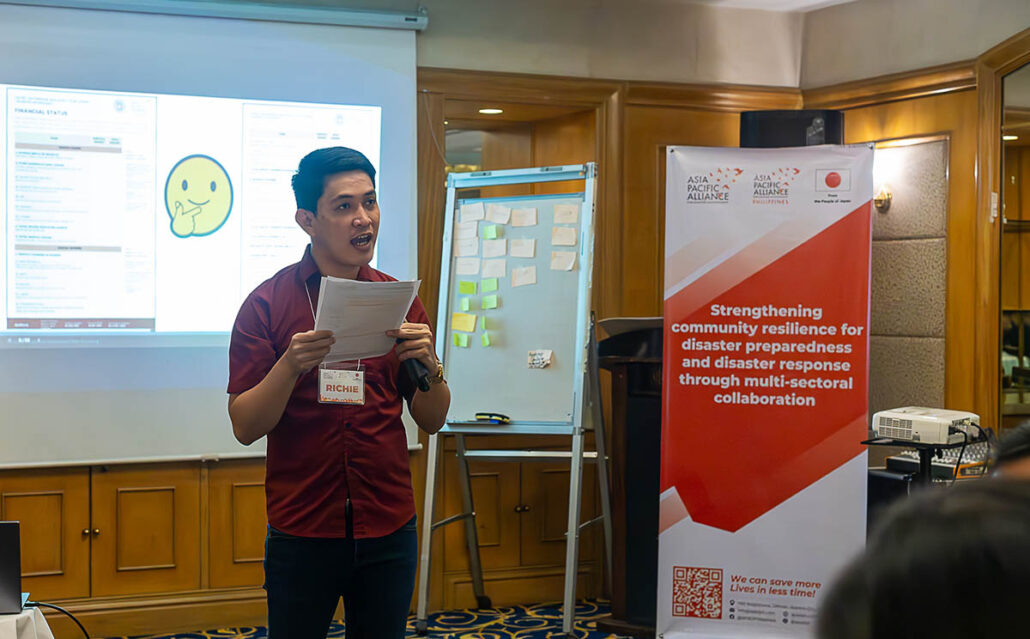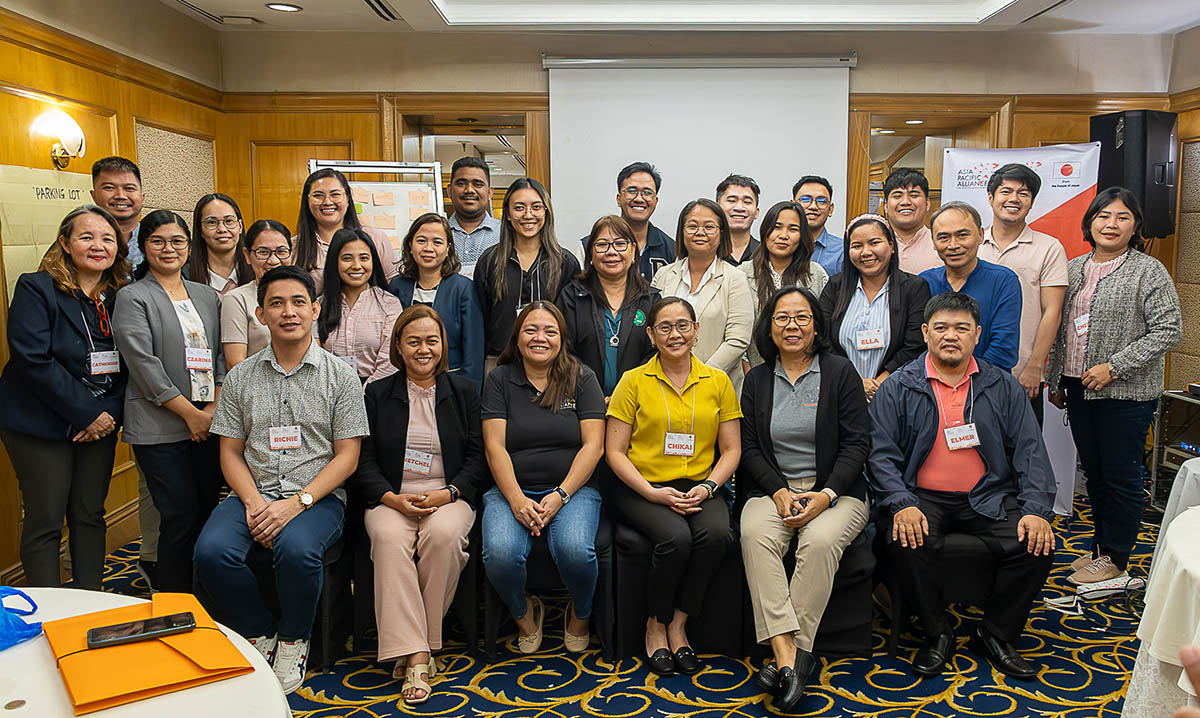
“Bigger responsibility, bigger impact to the community.” This is how Metchel Verona, Executive Director of the Surigao Chamber of Commerce and Industry, describes her experience as a speaker in the Training of Trainers (TOT) on the Microenterprise Resilience Plan (MERP).
Organized by A-PAD Philippines in partnership with Bicol University, the three-day TOT held from March 18 to 20, 2025, at Richmonde Hotel in Pasig City marked a milestone in scaling up disaster preparedness and recovery planning for microentrepreneurs.
In the Philippines, microenterprises account for 98% of all businesses. Despite their economic importance, they are often portrayed merely as disaster victims. MERP challenges that narrative—positioning microentrepreneurs as first responders, leaders, and catalysts for recovery.
A Growing Network of Trainers
Through the TOT, participants from academe, civil society, local government units (LGUs), and business sectors were trained to become facilitators who can bring MERP to their own communities.
For Verona, who first joined a MERP session in 2023, returning as a trainer was a full-circle moment.
“Masaya ako na nagbigay sa kanila na na-impart ko yung knowledge na na-impart din sa akin. Ang naging impact po nito sa akin personally is yung pagiging advocate mo, advocate for preparedness and advocate for a change, (I’m happy that I was able to share with them the knowledge that was once shared with me. The personal impact this had on me is becoming an advocate—an advocate for preparedness and an advocate for change)” she said.

Joining her was Dr. Ritchie Montebon, Director of University of Cebu Lapu-Lapu and Mandaue Campus Community Extension Office (UCLM-CARES) and a fellow graduate from the original MERP pilot batch in Nueva Ecija—fondly called the “Gabaldon Family.”
Once a participant observing the sessions, he now leads one of the core modules: Understanding My Business, which helps entrepreneurs assess their financial resilience.
“Entrepreneurs need to know: Are they surviving, subsisting, or sustaining? That awareness can be the difference between recovery and closure when disaster strikes,” Montibon said.
He also noted how inspiring it was to work alongside new participants from across the country, each bringing diverse perspectives, but united by a shared purpose.
Scaling Up
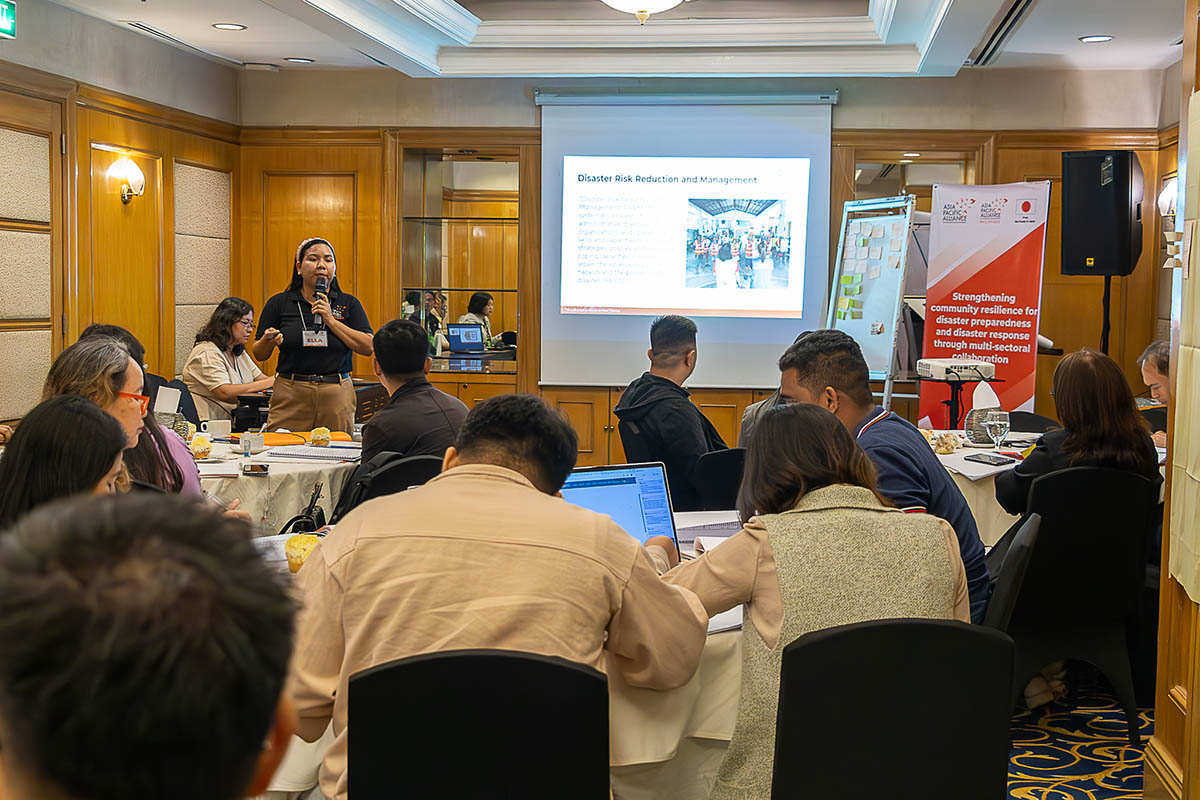
The MERP curriculum is the result of years of development and community-based research led by Dr. Elmer Lorenzana and Crestia Banares of Bicol University. For Banares, the March TOT represents more than a training—it is the continuation of a growing movement.
“I was privileged to help create the MERP modules. We started years ago with a small batch of trainees. Now, we’re scaling up. And to do that effectively, we need well-trained facilitators, people who not only understand the content, but also know their audience and how to deliver in ways that resonate,” Banares said.
Another powerful example of MERP’s impact is Nerissa Flores, Branch Manager of Kilusang Lima Para sa Lahat Multipurpose Cooperative in Nueva Ecija. In 2023, Flores served in a support role, helping with logistics during a MERP rollout. Today, she stands ready to lead as a frontline trainer.
“Noong 2023, nakaalalay lang kami. Tumutulong sa logistics at sa pagtuturo, pero hindi ko alam ang buong flow—paano i-deliver ang modules, paano intindihin ang kabuuan. Ngayon, naiintindihan ko na from both sides—as a learner and as a future trainer. (In 2023, we were just assisting. We helped with logistics and teaching, but I didn’t understand the full flow—how to deliver the modules, how to grasp the whole picture. Now, I understand it from both sides—as a learner and as a future trainer.),” Flores said.
Flores underscored the power of cross-sector collaboration as the cornerstone of MERP’s success. “Ang ganda ng naging collaboration. Iba-ibang sektor at industriya, iba-iba ang ideas—ang dami kong natutunan. Mas magiging maganda ang roll-out sa mga komunidad namin, (The collaboration was really great. Different sectors and industries brought different ideas—I learned so much. The rollout in our communities will be even better because of it)” she added.
From learners to leaders, these trainers now carry forward a shared mission: to empower microentrepreneurs not just to recover from disasters—but to rise stronger, smarter, and more prepared.
